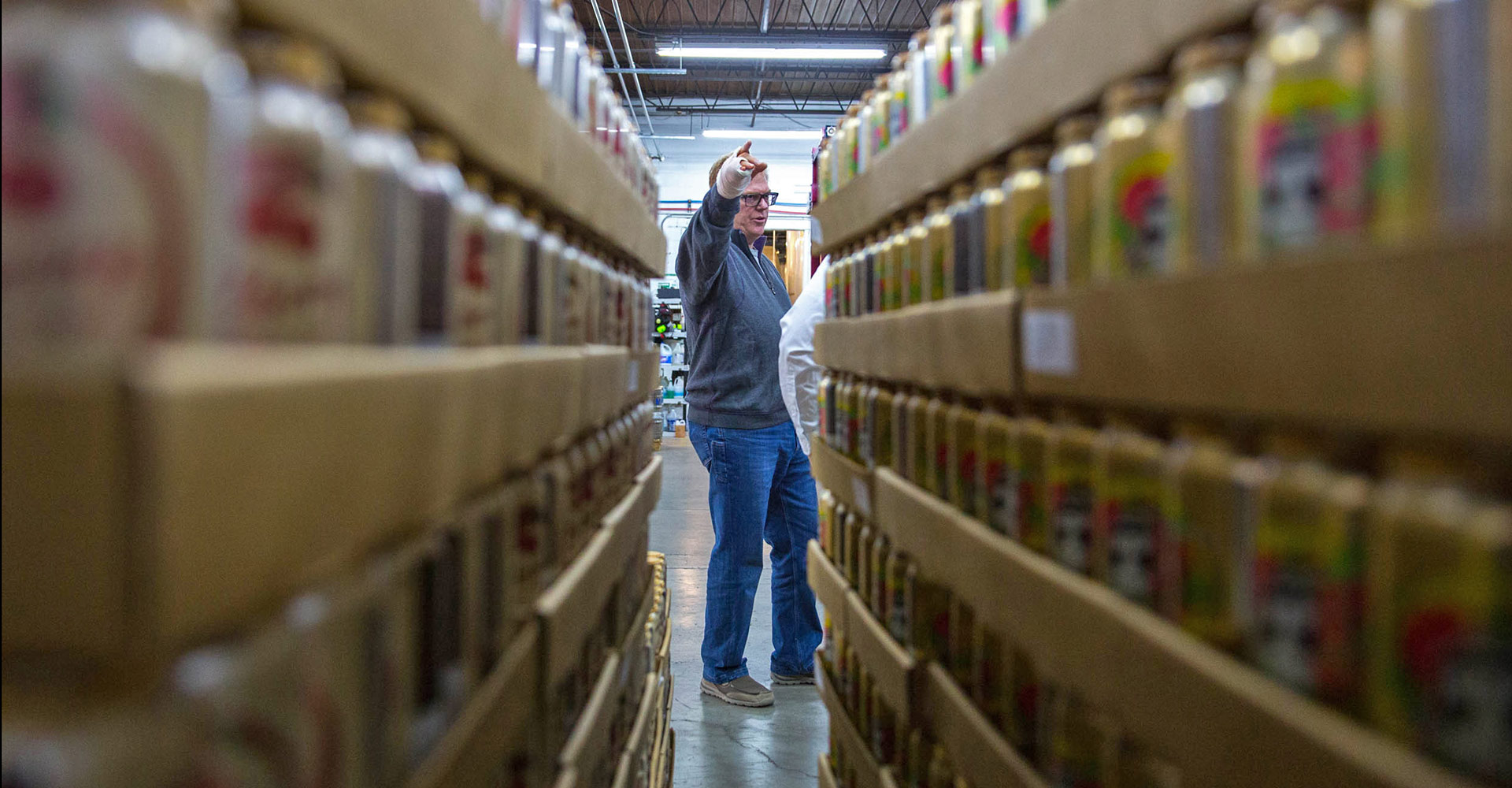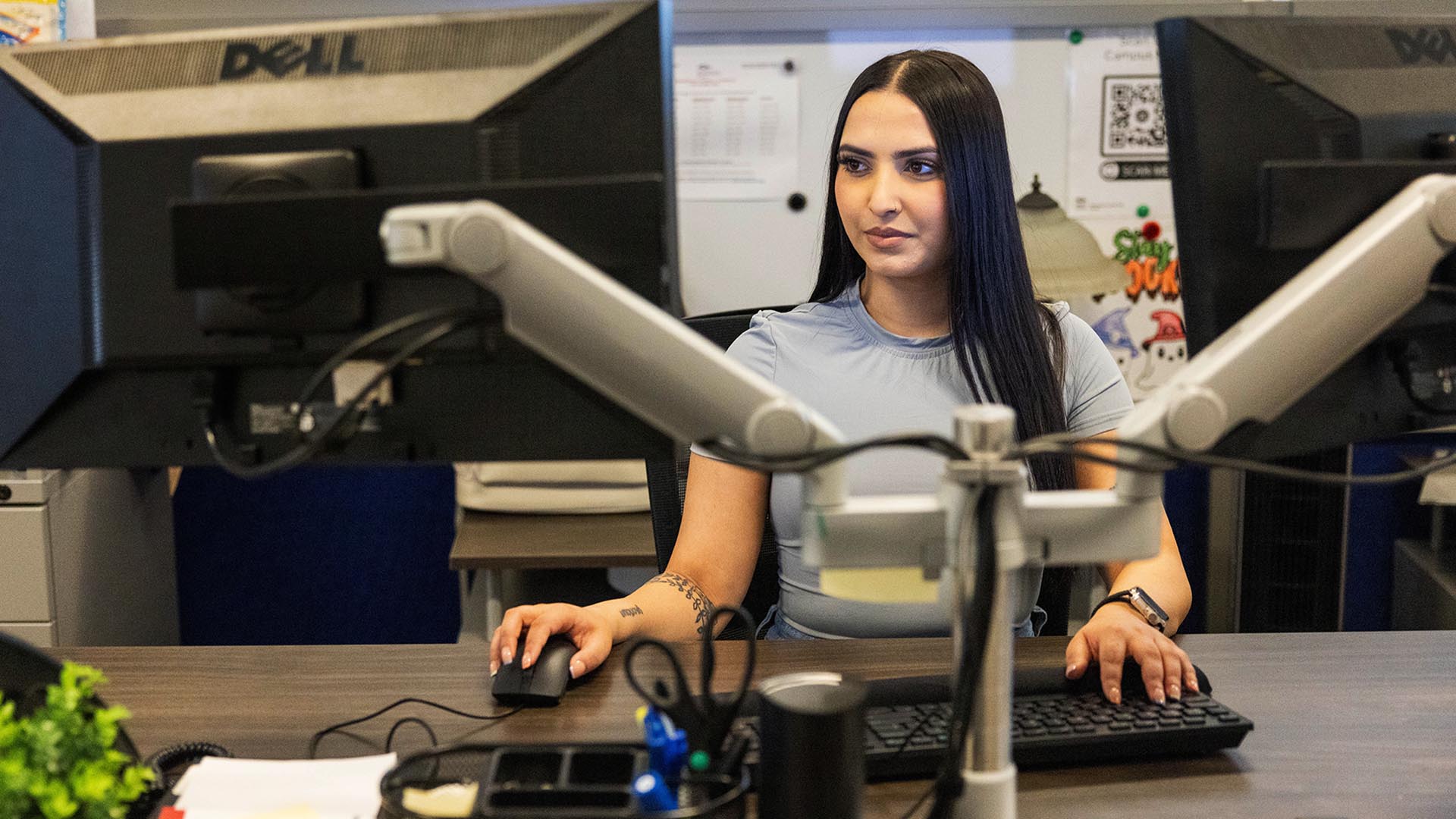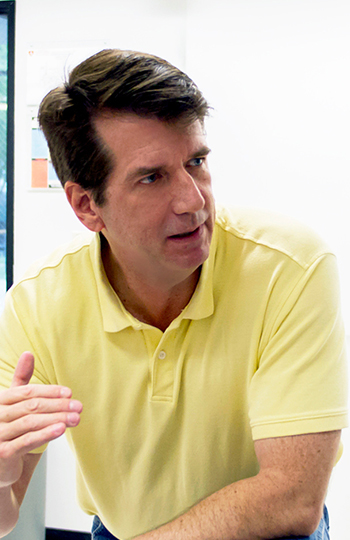A hard look at Colorado’s hard cider scene
To boost the state’s cider market, Colorado Cider Co. is planting orchards and turning over data to accounting students to search for growth opportunities.

You’d be hard-pressed to find someone who knows more about hard cider than Brad Page.
He’s the owner of Colorado Cider Co. and a founding board member of the U.S. Association of Cider Makers. Page also is president of the Colorado Cider Guild and deeply passionate about growing the state’s cider scene, from tree to sale.
On the agriculture side, Page owns an apple orchard on Colorado’s Western Slope and is lobbying the state’s growers to plant more apple trees for cider production. On the business side, he’s opening Colorado Cider Co.’s financial and sales data to Metropolitan State University of Denver accounting students in search of ‘ah-ha’ ideas.

Mulling market growth
For a taste of cider’s potential in Colorado, Page looks to Oregon.
The Beaver State’s number of beer breweries per capita is similar to that in Colorado, and that state’s population shows similar drinking habits to those of Coloradans, he said. Yet, cider is three times as popular in Oregon as it is in Colorado.
One factor for that disparity might be the trees, Page said.
“It’s a fruit-growing area up there, but from a strictly consumer standpoint, they drink beer, and we drink beer. It’s not that culturally different,” Page said. “My argument is that it’s coming. There’s going to be a market for these apples if we plant them.”
Regional cider producers such as Colorado Cider Co., which distributes to several neighboring states, have shown sizable growth since Page opened up shop in Denver’s Valverde neighborhood in 2011. Nielsen research showed that off-premise market share for regional ciders grew by 30 percent in 2017, and Page has seen the good and bad of market growth in Colorado bars and liquor stores.
“The market has matured, so a lot more people are buying the packaged product,” Page said. “There’s so much more competition on the draft side.”
When Colorado Cider Co. was the only pour in town, it dominated the limited number of cider draft handles in bars, he said. Now, the company is sharing those draft handles with other cideries.
“The other part of the equation – and we talk about this in our cidery guilds – is whereas in the Northwest you’ll go into a craft bar and there are five cider handles, (in Colorado) there are still only one or two per bar,” Page said.

Apples, analytics and academics
He may not be able to control what bars pour or the agricultural yield that could further boost the state’s growing cider industry. But the margins of his own company’s production and distribution are ripe for growth. To ensure that Colorado Cider Co. is finding efficiencies and profit in every apple, Page has outsourced the analysis of his business to a class of accounting students at Metropolitan State University of Denver.
For the last five years, Page has opened up his books to senior-level students in Assistant Professor Bill Mesa’s Advanced Accounting 4510 course. This fall, the class was given four years of sales and cost data and asked to find interesting trends and growth opportunities.
“The partnership has evolved along with (Page’s) business,” Mesa said. “From the early years, we did cost analysis of manufacturing, and that was helpful to him setting margins and pricing. We moved on from there to data analytics, because he has the data set to support something like that now.”
Mesa’s students start the open-ended project by signing a nondisclosure agreement — then they dig in on tens of thousands of rows of raw data in Microsoft Excel spreadsheets. Working in small teams, the student’s employ tools of the business-intelligence trade such as Excel, Tableau and IBM’s Watson before presenting findings and recommendations to Page.
Over the years, their work has often been a validation of what the company’s leaders think about the business, Page said.
“We’re looking for that and also for something we haven’t thought of before,” he said. “As our sales get bigger and we have more data, in the future there might be some ‘ah-ha’ moment that comes out of it.”

Mesa’s course provides students practical experience with an actual company, and the self-guided and unpredictable nature of the cider project also prepares them for the workforce.
“Being an accounting major, I like knowing what I’m looking for,” said Kalyn Howard, who will graduate in December. “With this project, you don’t really know what you’re looking for. It’s exploratory.”
Howard had real-world accounting experience prior to taking this course. She interned at professional-services firm EKS&H, which counts several MSU Denver alumni as partners, where she completed individual tax returns, corporate returns, trust returns and quarterly estimates.
Her group is comparing how different cider labels are performing relative to the flagship labels at ski resorts. She said the project has provided her a different perspective on the professional path available to her after graduation.
“Going into accounting, I wanted to do tax, but I’ve always been interested in consulting,” Howard said. “It’s been nice to get a sneak peek of what I could be doing in the real world if I went into consulting.”
Hugo Calvo’s team is mapping sales data for different labels down to the ZIP-code level.
Calvo, who also is graduating next month, completed an internship with Arrow Electronics in which he gained experience doing general ledger accounting for international clients. He said he found strong value in the experience the cider project provided, from site visits to meeting the owner and learning new software.
“We could have been doing textbook stuff, and there’s nothing wrong with that, but getting out of the classroom gives you a different dimension,” Calvo said.

Mesa said the project will help students beyond entry-level industry jobs and that he’s been contacted by former students who say their employers have been surprised by their technical abilities.
“They walk away with a lot more than just analytic tools. They learn to become more resilient, to improvise with data and to work around problems. They learn skepticism – ‘The data’s telling me this, but is this really an appropriate comparison?’” Mesa said. “That would not be a set of skills you would an assume an accountant should have 10 years ago, but it is now.
“Data analytics is a combination of accuracy and plausibility. It’s an ongoing project.”







